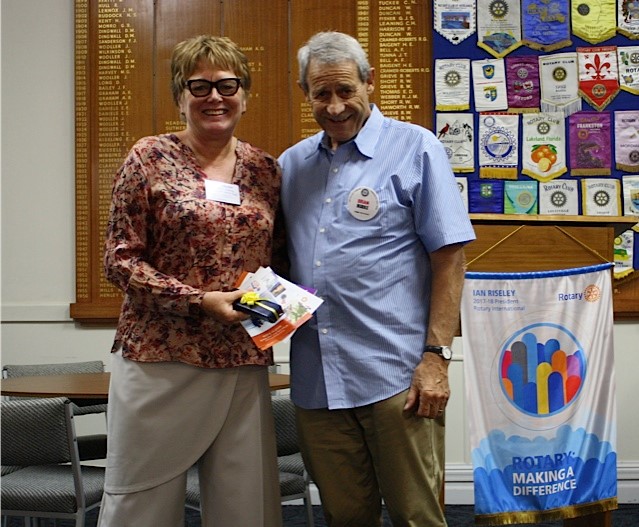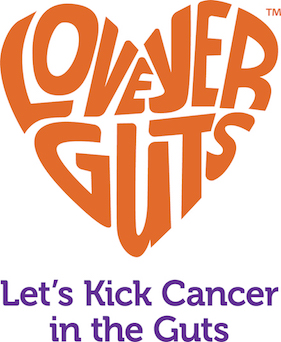Ruth has worked in the not for profit sector for the last 25 years as a leader of charitable trusts. She joined the Gut Cancer Foundation two years ago. Ruth was a member of the Rotary Cub of Parnell for 15 years and is a Paul Harris Fellow. Ruth gave a very interesting insight into the work of the Gut Cancer Foundation.
Gastro-intestinal (GI) cancer is a broad term used to encompass cancers of the digestive system: the esophagus, stomach, liver, gallbladder, bile ducts, pancreas and bowel. It is collectively the most common form of cancer in New Zealand. Each year, nearly 5,2250 New Zealanders are diagnosed with the GI cancer. Yet, despite being the most prevalent form of cancer, it is under-represented in funding and awareness.
To improve the survival rates of GI cancer, it is most important to provide funding for clinical research. Clinical trials are the final link in the chain of medical research that take discoveries made in the laboratory and advance them into treatments that can improve survival rates and the quality of life for patients
The Chairperson of the Gut Cancer Foundation is Grant Baker who developed bowel cancer nine years ago. Had it not been for medical research, he would not have accessed the chemotherapy which has helped to save his life.
Pancreatic Cancer is the most lethal with a 95% death rate. The diagnosis of Pancreatic cancer among younger people is rising, mainly due to obesity and in particular among those who have a diet which is high in sugar. If abdominal pain wakes you up at night, it should be checked out. It is important to keep abdominal organs moving by standing more than sitting. 20% of Upper GI cancer sufferers will survive. Gallbladder cancer is more common in women than men.
Ruth gave us some tips for helping to prevent GI cancer which include: a diet which incorporates a variety of colour in your fruit and veges, avoid excessive red meat, reduce salt and salty food, eat tree nuts twice a week, try to have two fish dinners a week, exercise, be happy and social, less alcohol, don't smoke, reduce stress, sleep well and get out in the sun. Get checked out by your GP if you have any concerns.
Over the last ten years, the Gut Cancer Foundation has raised $1.3 million and funded five clinical trials, two clinical research fellowships and two clinical research projects.

